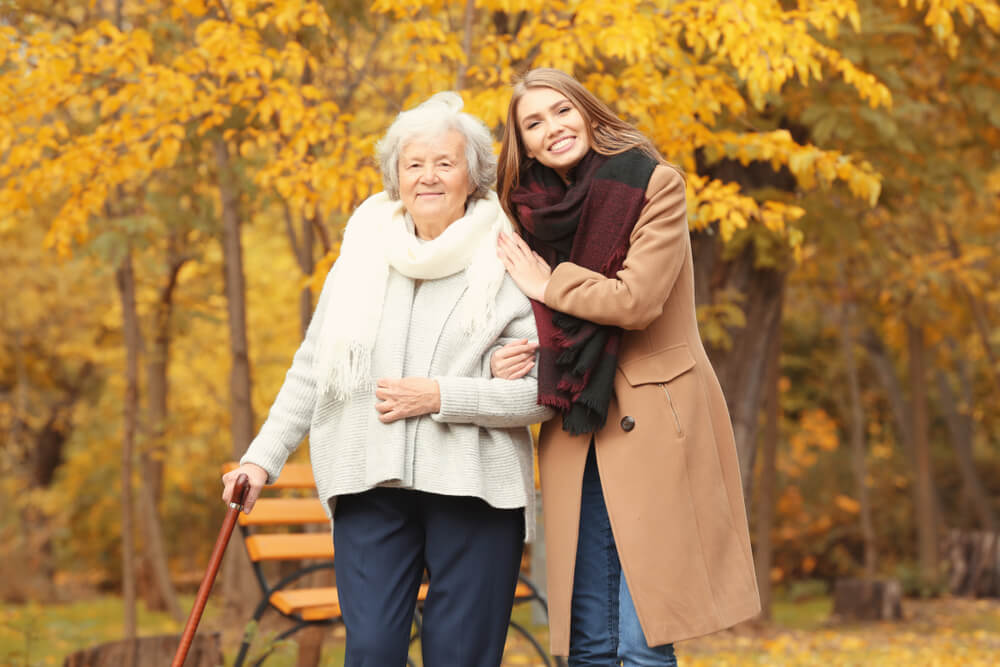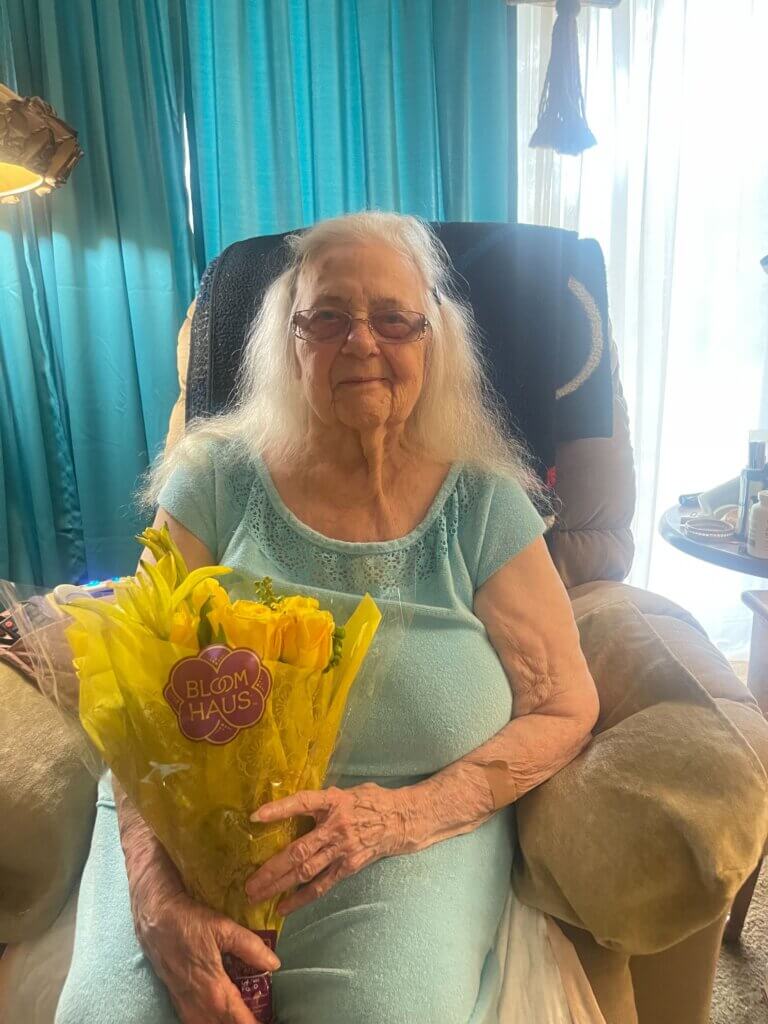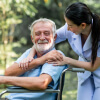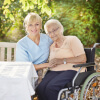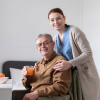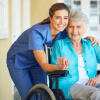Helpful tips to assist with Fall prevention for your elderly loved one.
Falls become an increasing concern for many older adults, with risk escalating with age. But many falls can be prevented through practical safety measures tailored to the individual. For seniors in the Houston area wishing to remain living independently at home, proactive fall prevention steps are key.
By reducing home hazards, optimizing health conditions and incorporating physical therapy, seniors can significantly reduce their fall risk. We will explore common causes of falls, screening assessments to identify risks, and customized ways to fall-proof one’s home environment and lifestyle. With vigilance and early intervention, the likelihood of debilitating falls decreases.
Is your loved one preparing for a move? Here’s a a relocation guide to help plan.
Understanding Fall Risks for Seniors
One out of three seniors aged 65 or older will fall each year. The incidence increases to 50% for those over 80. Falls result in nearly 3 million emergency room visits annually. They are the leading cause of injury-related death for those 65 and over.
Certain medical conditions and age-related physical changes predispose seniors to falling. Major risk factors include:
- Muscle weakness, especially in the legs and core
- Balance and coordination difficulties
- Use of walking aids like canes or walkers
- Neurological diseases like Parkinson’s, Alzheimer’s, dementia
- Arthritis impacting joints and restricts movement
- Impaired vision or hearing compromising environmental awareness
- Medications affecting cognition, balance like sedatives, blood pressure pills
- Orthostatic hypotension with drops in blood pressure
- Foot conditions causing pain or poor support when walking
- Osteoporosis resulting in fragile bones prone to breaking
Screening for risks combined with tailored, multi-faceted intervention can significantly reduce these preventable accidents.
Screening Fall Risks with Assessments
Healthcare providers can conduct screens and assessments to identify seniors’ risk for falling, areas of abilities and deficits, and appropriate steps for mediation. Common fall risk assessments include:
Timed Up and Go Test – Measures the time needed to rise from a chair, walk 10 feet, turn around and sit back down wearing regular footwear and walking aids used. Over 10-12 seconds indicates high fall risk.
30 Second Chair Stand – Counts how many times the senior can stand up from a chair with arms folded across chest in 30 seconds to test leg strength and endurance. Fewer than 12 stands indicates heightened risk.
Multi-Directional Reach Test – Measures the maximum distance one can reach forward, backward and to the sides while standing and leaning to test postural control. Less than 6 inches of reach ability indicates challenges.
Berg Balance Scale – This 14-item scale assesses ability to maintain balance while doing tasks like standing, reaching, bending, transferring. 36-56 points indicates fall risk, under 36 imminent risk.
Timed Floor Transfer – Measures time needed to get down onto the floor on hands and knees and back up to test coordination. Over 30 seconds can show impaired mobility.
These objective evaluations allow professionals to assess capacities and tailor interventions to bolster specific abilities preventing future falls.
8 Steps for Fall Prevention at Home
After identifying risks, seniors and family members can take actions to reduce tripping and slipping hazards around the home:
Remove Clutter – Declutter pathways inside and outside the home. Ensure adequate lighting without shadows or glare. Install handrails on both sides of stairways.
Install Grab Bars – Add grab bars inside showers or near toilets provide stability when moving between positions or sitting/standing.
Use Assistive Devices – Consult physical therapists about using canes or walkers properly sized to aid stability during walking. Don’t walk unaided if unsteady.
Adapt Bathrooms – Install shower benches, elevated toilet seats, hand held shower heads and slip resistant mats/strips for bathing safety.
Improve Lighting – Ensure rooms, hallways and entrances are well-lit. Install motion sensor night lights. Increase wattage in lamps.
Store Items Within Reach – Keep regularly used kitchen, bathroom and clothing items within easy reach to avoid climbing or bending dangerously.
Wear Proper Footwear – Wear supportive, low-heeled shoes with non-slip soles. Avoid walking in socks or slippery shoes. Replace worn treads.
Modify Flooring – Remove throw rugs that slide. Repair loose carpeting. Install slip-resistant vinyl in kitchens and bathrooms.
With home adaptations based on physical ability assessments, seniors can make their living environment much safer. Consult occupational therapists for personalized home modifications.
Enhancing Physical Health and Well-Being to Prevent Falls
Beyond home adjustments, evidence shows physical engagement helps boost strength, balance and coordination – key to preventing tumbles. For those that are able to a customized regimen can include:
Lower Body Strengthening – Squats, leg extensions, calf raises
Core Strengthening – Planks, crunches, lower back exercises
Balance Training – Heel-toe walking, standing on one foot, head turns
Tai Chi – Gentle flowing movements improve posture, balance reactions
Gait Training – Walking properly using assistive devices like canes and walkers
Staircase Climbing – Ascending/descending steps, alternating feet
A clinician can tailor exercises based on the senior’s baseline abilities and challenges. Consistency is key for strengthening. Consult with a qualified professional to understand how man sessions per week your loved one needs.
Addressing Key Health Conditions and Fall Prevention
Optimizing certain health conditions through medical oversight helps lower falling episodes:
- Heart Disease – Controlling arrhythmias, orthostatic hypotension and treatment side effects
- Stroke – Improving residual weakness, paralysis or coordination challenges
- Parkinson’s – Addressing medication side effects, mobility aids, home safety
- Diabetes – Preventing foot numbness and ulcers through routine podiatry
- Arthritis – Using anti-inflammatories, braces, PT for joint protection
- Incontinence – Reducing urgent trips to the bathroom by managing causes
- Depression – Improving motivation for self-care and physical activity
- Dementia – Providing supervision and home proofing for memory-impaired
With vigilance over chronic conditions, seniors can reduce associated risks of falling.
Medication Adjustments to Prevent Falls
Certain prescription and over-the-counter medications raise risks of dizziness, weakness and drowsiness – all precursors to falls. With physician guidance, dosages and types can be adjusted:
Diuretics – Reducing or eliminating if being taken just for mild swelling versus medically required uses like heart failure.
Blood Pressure Pills – Lowering dosages if drop in BP is extreme upon standing. Stopping unnecessary medications.
Tranquilizers – Eliminating or using lowest possible dose of anti-anxiety pills, sleep aids and antipsychotics.
Antidepressants – Selecting types like SSRIs less likely to cause balance issues versus tricyclics.
Allergy/Sinus Pills – Choosing non-drowsy formulations.
Narcotic Pain Relievers – Using only if absolutely required at lowest dose. Avoiding long-acting versions.
Sedatives – Preventing accidental mix ups with alcohol or other medications that compound drowsiness.
With a comprehensive medication reconciliation, doctors can modify regimens to reduce fall risks.
When to Consider Higher Levels of Care
If history of repeated falls persists despite interventions, or injuries like major fractures occur, seeking professional and reliable care may become the safest option. Warning signs include:
- Multiple falls weekly requiring help getting up
- Severe injuries like broken bones or head trauma
- Difficulty recalling fall incidents clearly
- Inability to walk safely even with assistance
- Failure of home safety modifications to reduce risks
- Family cannot provide adequate hands-on support
-Confusion or dementia progresses making oversight impossible
Seeking an organization with 24/7 availability of assistance ensures round-the-clock observation and immediate help after a fall. However, many seniors can significantly minimize risks and maintain independence at home with diligent efforts with a combination of personal care and technology.
Early action, engagement of health professionals, home adaptations and consistency sustaining mobility are the pillars of effective senior fall prevention. But no one approach guarantees success in every scenario. An individualized strategy personalized for each senior’s unique risks and condition optimizes outcomes. With vigilance and support, more years of safe, healthy independence remain achievable.
Contact us at 832-371-6600 for a free consultation to share the challenges you’re facing, and to learn how our personalized home care services can help you.
Home Matters Caregiving proudly serves the Houston Metro area providing care for seniors wherever they call home.

